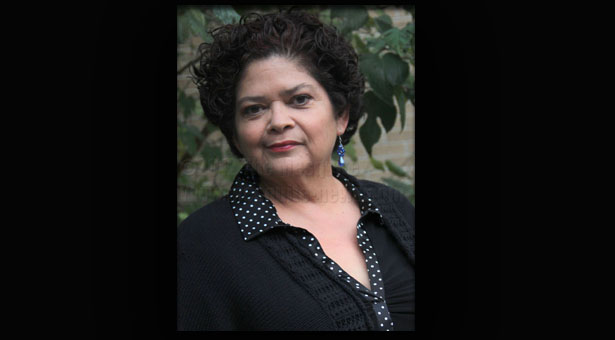
By Laura de Leon
Maria Dolores Baray Zapata Murff claims she isn’t going to let anyone stand in the way of presenting a name that is rightfully hers.
Murff, 57, is planning to complete her Master of Counseling and Guidance in December, but the name she wanted on her diploma was not easily approved.
When her request to have her maiden name on her diploma was denied multiple times by the registrar, Murff wrote about her experience and took a stance against Texas A&M-San Antonio administrators on Page 18 of the November 2012 issue of the Esperanza Peace and Justice Center’s newsletter, La Voz de Esperanza.
She argued in the column that her request was denied because of “cultural discrimination and gender bias.”
While Murff claimed discriminatory practice, the university explained it was following policies that made sense for all students. Activism conflicted with administrative policy until a resolution was reached in October.
“When I was told by Texas A&M officials at San Antonio, ‘No, you cannot use your maiden name on your diploma,’ it was like another blow in my gut. ‘No, they said, because Zapata is not on your driver’s license. And, therefore, not your legal name,’” Murff wrote.
By her own account, the column is a tribute to her father Ernesto T. Zapata, but also revealed her frustration with the university’s rules and policies. The column was published after the university ultimately approved her name request.
An activist and former board member of the Esperanza and the MujerArtes cooperative, Murff said she was asked to submit a column to La Voz on the topic of her father’s death. It was in honor of him, she said, that she wrote the story of her difficulties; to show that she is still fighting for her rights and his name.
Murff recounted her father’s words:
“Mija, when it comes down to it … all you really have in the end is your name and your honor.”
Frustration with policy
Early in the semester, Murff knew her name on file with the university was not the name she wanted printed on her diploma. She followed university procedure, went to the welcome center and filled out a name change request form.
But there was a problem. The university requires one legal certified document, such as a birth certificate or marriage license, and one photo identification with matching names for a successful name change. Murff’s documents included a birth certificate and a driver’s license, but did not have an identical name placement.
After moving up through the ranks of administration, Murff spoke with Kenneth Mitts, vice president for finance and administration, who notified her that her request was approved.
Margie Vasquez, director of enrollment services, said the university’s executive team reviewed the case and determined the diploma would not affect her name on file with the university.
Past experience shapes perspective
In an interview on Nov. 13, Murff said she had experienced discrimination as an elementary student in San Antonio; teachers anglicized childrens’ names to ease pronunciation and speaking Spanish was not allowed. She also added that when women change their names they can be treated with disrespect because a woman wants the ability to use her given name.
“I told them about my past, being from the generation that got our mouths washed out with soap if we dared to speak Spanish. I told them about the kid on the bus who spit out the window as I exited and called me a greasy Mexican,” Murff wrote in the column.
After her request was denied, Murff emailed a complaint to Jennifer Zamarripa, director of admissions and registrar, explaining why she should be allowed to present the name of choice on her diploma, with legal documentation provided.
“I would like to use the name my father gave me. I hope you understand that the name means the world to me. It also means that yes, I am of Mexican descent … and I am proud,” Murff said.
A&M-San Antonio’s denial didn’t make sense to Murff. She said she made the exact same request as a student at Our Lady of the Lake University where she received two undergraduate degrees.
Murff wanted her master’s degree from A&M-San Antonio to have the same name placement, Dolores Zapata Murff, as her undergraduate degrees that she obtained from OLLU: her first name that is on her driver’s license, her maiden name and her married name.
OLLU did not have a problem with the name placement Murff requested, she said.
“I paid for the education, I’m paying for the piece of paper and I should have the right to have whatever name I want on there.”
In special circumstances, like Murff’s name placement request, Vasquez said the university will determine the outcome on a “case by case scenario.” She said it is not a normal procedure.
Vasquez said her office averages four to five name change requests a month. She said most are made because of a marriage or divorce, and some are due to spelling errors.
Graduation Coordinator Dolores Scritchfield said students have until the semester census date to update or correct the name in the university’s official records so the change can appear on their diploma. She said there is not a number of names limited on a diploma as long as it is the student’s “official full name.”
After a diploma has been issued, Scritchfield said graduates can re-order their diploma at any time because of a name change or correction with proof of identification, for a $25 fee.






